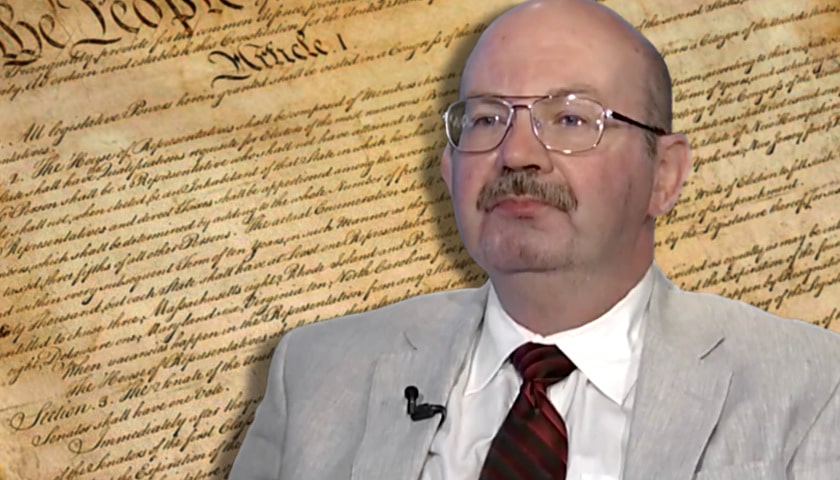Illinois
v.
Ferriero
ACLL Role:
Case Start Date:
Deciding Court:
Original Court:
Practice Area(s):
Amicus
January 1, 2020
United States Court of Appeals for the District of Columbia Circuit
U.S. District Court for the District of Columbia
Limited Government
ACLL Role: Amicus
Case Start Date: January 1, 2020
Deciding Court:
United States Court of Appeals for the District of Columbia Circuit
Original Court: U.S. District Court for the District of Columbia
Limited Government
Practice Area(s): Limited Government
CASE SNAPSHOT
In 1972, Congress sent the Equal Rights Amendment to the States for ratification but imposed a 7-year deadline. It fell three votes short of ratification. But drawing on the success of the 27th Amendment’s ratification, three states with liberal leadership voted to ratify the ERA from 2017-2020. These states then sued to have the ERA recognized as the 28th Amendment. The United States District Court for the District of Columbia dismissed their case, and they appealed to the D.C. Circuit, which is often considered the second most powerful court in the country. Gregory Watson (pictured above), who led the charge to ratify the 27th Amendment, wanted to participate in the case and tell the court that ratifying the ERA is not the same as ratifying the 27th Amendment. He asked ACLL to represent him, and ACLL submitted an amicus brief on his behalf to the D.C. Circuit.
STATUS
ACLL filed a friend-of-the-court brief at the D.C. Circuit on March 10, 2022.
FOR THE MEDIA

CASE SUMMARY
The ERA, Its Issues, and Its Failure to Pass
In 1972, Congress passed the Equal Rights Amendment (“ERA”) and sent it to the States. The key part of the ERA read as follows: “Women shall have equal rights in the United States and every place subject to its jurisdiction. Equality of rights under the law shall not be denied or abridged by the United States or by any State on account of sex.” While on its face the ERA was not necessarily controversial, conservatives worried that the courts could interpret this amendment to read a right to abortion into the Constitution. At the time, pro-abortion advocates argued that abortion was necessary to give women the same rights and opportunities that men had.
This continued to be a major concern for conservatives even after the Supreme Court decided Roe v. Wade in 1973. As bad as Roe was, it still gave the States some freedom to impose abortion restrictions as the baby developed, especially in the third trimester. Liberals like Ruth Bader Ginsburg, who at the time was working for the ACLU, argued that Roe did not go far enough. Ginsburg and those like her argued that the principle of equality meant that women should have the right to abort up until the moment of birth. Thus, even after Roe, conservatives were concerned that the ERA would take away the little bit of freedom the States had left to protect life.
Fortunately, when Congress passed the ERA, it included a 7-year deadline. Congress provided that the ERA would not be effective if 3/4ths of the States failed to ratify it within 7 years. Although the ERA got close, it fell three states short of the votes it needed to ratify the ERA by 1979. Thus, it appeared to everyone that the ERA was dead by the end of the ‘70’s.
Gregory Watson and the 27th Amendment
When the ERA died, an effort to ratify a nearly 200-year-old Amendment was beginning. In 1982, a college student in Texas named Gregory Watson (pictured above) was writing a term paper concerning the ERA. While he was doing his research, he noticed that one of James Madison’s 12 proposed Amendments in the Bill of Rights was passed by Congress but had not been ratified by the states. (Madison originally proposed 12 amendments in the Bill of Rights. 10 of the 12 were passed and ratified.) That Amendment provided that if Congress voted itself a pay raise, then it would not take effect until the next set of elections. Unlike the ERA, this Amendment had no deadline.
Thus, despite the fact that it had been nearly 200 years, Watson concluded that this Amendment could still be ratified. Watson changed the subject of his paper from the ERA to this Amendment and argued that it could still be ratified. Shockingly, he received a grade of “C,” with his professor arguing that it could not be done.
Watson disagreed. Over the next ten years, he led a letter-writing campaign to the state legislatures to ratify this Amendment. In 1992, Alabama became the 38th state to vote for its ratification. At that point, 3/4ths of the States had voted to ratify it. Thus, after over 200 years, this Amendment became the 27th Amendment to the Constitution.
Piggybacking off the 27th Amendment
When liberals saw Watson’s success with ratifying a 200 year old proposed Amendment, they began to think that the ERA could be ratified in the same way despite its self-imposed 7-year deadline. Thus, liberals began an effort called the “three state strategy” to ratify the ERA. Even Ruth Bader Ginsburg, who had been the champion for “women’s rights” in the past, thought that the three-state strategy was a bad idea. Nevertheless, efforts persisted to get three more states to ratify the ERA.
In 2017, Nevada became the first of three states to belatedly vote for the ERA’s ratification. The Nevada legislature explicitly took note of what happened with the 27th Amendment and claimed it was doing the same thing with ratifying the ERA. Illinois followed, again citing the 27th Amendment’s success. Finally, in 2020, Virginia became the third state to belatedly ratify the ERA. Like the others, Virginia also cited the 27th Amendment’s success.
After Virginia’s vote, these three states sued the National Archivist, asking the court to order him to recognize the ERA as the 28th Amendment. The trial court dismissed the suit, and the three states appealed to the D.C. Circuit. After Virginia elected a Republican administration in 2021, Virginia switched sides and dropped out of the suit. Still, Illinois and Nevada asked the D.C. Circuit to order the ERA’s recognition as the 28th Amendment. Many liberals joined the effort as amici curiae.
Watson, watching this entire effort and alarmed that his work was being twisted, sought to file an amicus brief to the D.C. Circuit. After being informed that Watson wanted to file a brief, ACLL offered to file an amicus brief on his behalf. Mr. Watson wrote most of the brief’s content himself, with ACLL ensuring that it met the legal requirements for a brief and making only minor tweaks.
In short, Watson believed that the 7-year deadline was fatal to the ERA’s belated ratification. ACLL agreed and was therefore happy to submit the brief on his behalf. If ever there was an “expert witness” in the United States concerning belated efforts to ratify a Constitutional Amendment, it is Mr. Watson. ACLL was honored to represent him and help present his case to the D.C. Circuit.
Importance to Limited Government
Because the Constitution is the Supreme Law of the Land, it is important to vigorously oppose any effort to illegitimately alter it. In this case, because Congress imposed a 7-year deadline (and because the Supreme Court has held since the 1920’s that such limitations are valid), the ERA cannot be validly ratified by a three-state vote 40 years after the deadline. Thus, adding the ERA to the Constitution would pervert it. Perverting the Constitution is something that must be vigorously opposed if limited government remains a key feature of the American system.
Furthermore, because the Constitution does not contain a right to abortion, efforts to read such a right into the Constitution through illegitimate means must be vigorously opposed as well. The first duty of government is to protect innocent life, not to take it. Because it appears that the Supreme Court may soon overrule Roe v. Wade in Dobbs v. Jackson Women’s Health Org., we cannot allow a right to abortion to be read back into the Constitution through an illegitimate amendment if Roe finally falls.
Alabama Center for Law & Liberty 2213 Morris Ave, Floor 1 Birmingham, AL 35203 256-530-0519
The Alabama Center for Law and Liberty is Christian non-profit law firm.
©Alabama Center for Law & Liberty. All rights reserved.
